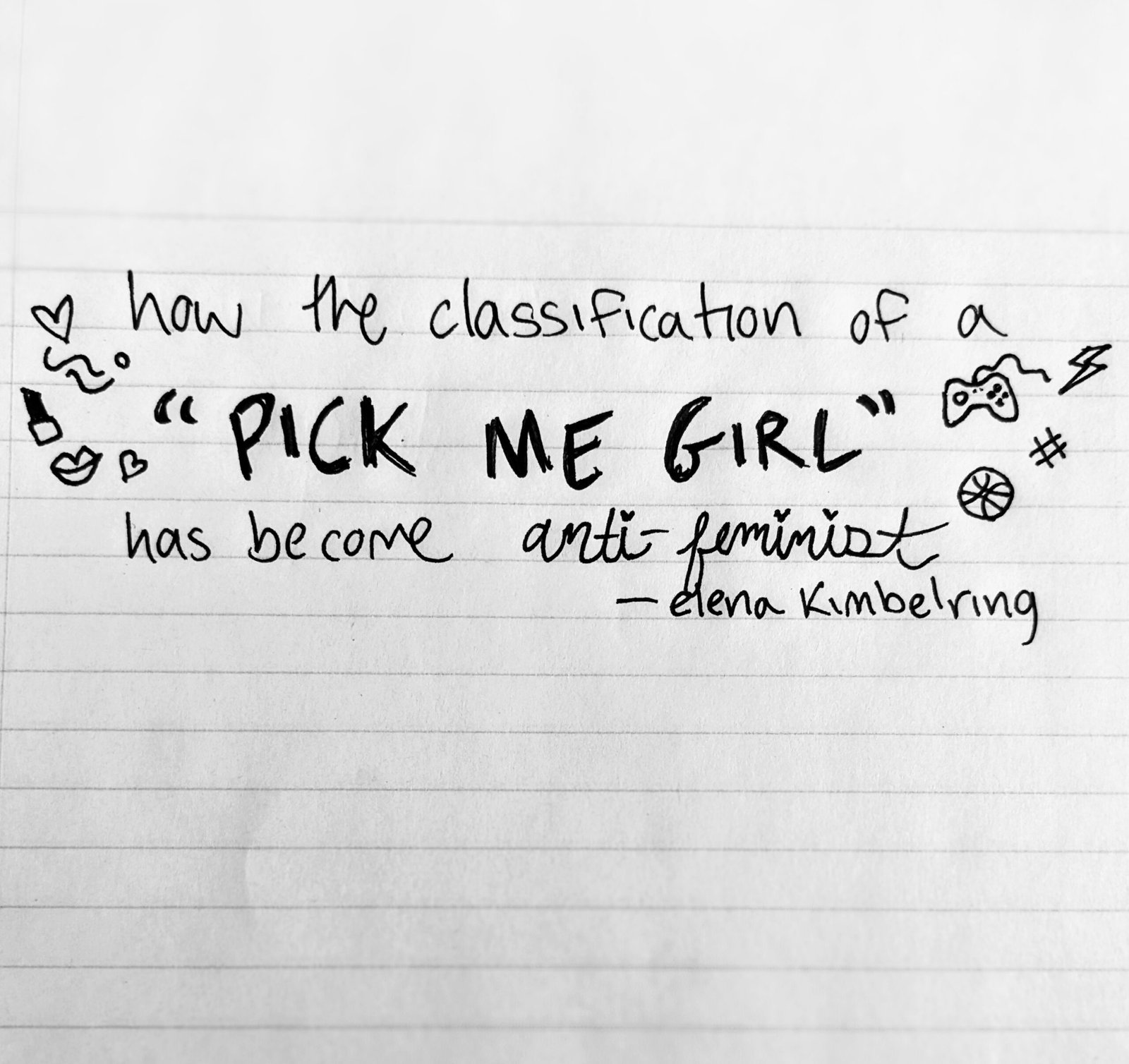The term “pick me girl” originated on Twitter in 2016, became more widespread through the use of the media, and is now a phrase easily identifiable in conversations. Dictionary.com defines the term as a woman who obsessively desires male approval and validation, often at the expense of other women. Usually, this is done in a way that separates themselves from the female gender and disassociates them from anything seen as typically feminine. Essentially, these women themselves are “anti-feminist”, acting in a way that benefits the male agenda. While I do believe these women exist, trying to conform to patriarchal ideologies, the terminology of a “pick me girl” has reached shocking levels. In this day in age, classifying another woman by this term can be seen as an insult. Consequently, we put ourselves up, describing ourselves as far from the title of a “pick me girl”.
Typically, women are classified by the stereotypes created for us. The prejudice against women can be summarized into two main categories, maternal or hypersexual. Women are expected to fit into these two categories of being either sexually pleasing to a man or waiting on them hand and foot. Along with these stereotypes also come the things that we see as typically feminine, like enjoying things that prove us as soft and delicate i.e. enjoying beautifying ourselves or liking the color pink. These things put us into the category of “classic women.” The problem lies in the fact that we constantly try to separate ourselves from specific stereotypes, to prove we can be more than what society expects of us. Othering ourselves can sometimes feel like the only way to prove that we have worth beyond our gender. In many cases, this comes from the need to prove to men that we stand apart from the rest and our value is higher. We’re special. Mind you, in this case, I am only referring to the heteronormative perspective of this phenomenon. Though this may seem trivial, it's the human condition to want to be wanted and valued. Due to the patriarchal society we are a part of, women are conditioned to believe that men are inherently better than us. That it's necessary to prove ourselves, a standard of which men are never held to the same level of. So by this need to other ourselves, certain interests and such can often be held to different standards of what makes someone a “pick-me girl” (it's also important to note the terminology of girl, a phenomenon which mainly affects teenage girls still understanding their identity).
It’s important to understand how we perceive the “pick me girl” to be, usually a girl who very loudly unidentifies herself with typical female attributes. She wears baggy clothes, is interested in “boyish” things such as video games or sports, has mainly male friends, and most importantly is not offended by unfeminist statements repeated around them. She is perceived as being “one of the boys” but has a secret vendetta of dating these men first, proving to them that she is the better choice as she is inherently above other women. Then like a cycle, she comes to realize that despite her hard work to differentiate herself, she is still seen as a woman and not valued how she wants to be. No matter how hard we try, women will never be granted the same respect given to men.
At this point, the “pick me girl” has become an over-dramatized characterization, used as a means to make fun of women without being viewed as anti-feminist. It repeats the cycle of women putting down other women to prove that they are superior. "Pick-me girls" clearly distinguish themselves from other women by making fun of those who may do outlandish things to seek male attention, all while doing the exact same thing but in a different way.
There is a reason that a “pick-me boy” doesn’t exist, it’s because men aren’t prosecuted for the things they choose to have an interest in. Except when these interests are associated with femininity, which is then viewed negatively as it emasculates the personality of said man. Essentially, femininity is repeatedly slandered. And of course the defining factor is that straight men are never held to the ethical standards women are held to, this standard of being special.

No Comments.